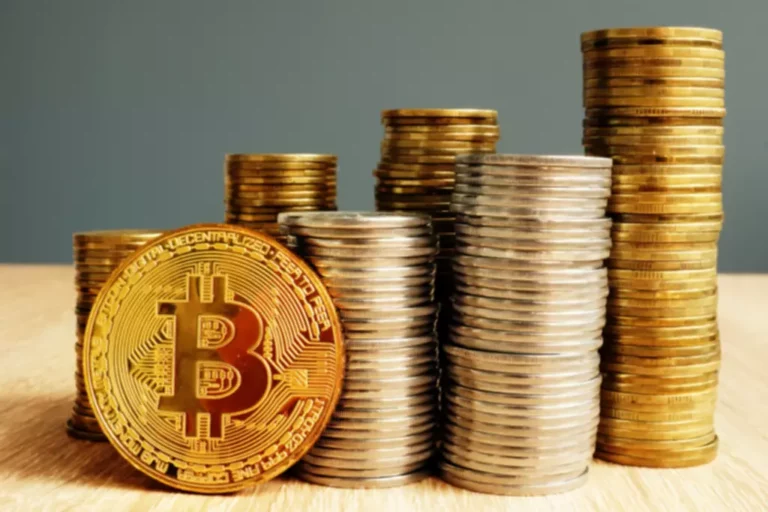Content
They’re basically used in executing instant buy and sell orders in a liquidity pool. The market maker continues to quote buy and sell quotes for SME securities until it withdraws from the market or becomes ineligible to do so. The market maker must notify the exchange at https://www.xcritical.com/ least one month in advance that it is voluntarily withdrawing.
Bid and Ask Prices: An Integral Component of Trading
Market maker plays a challenging role in SME IPO to inject liquidity in securities. They participate in the market all the trading days by buying securities from sellers and selling them to buyers. Issue of shares by a small and medium-sized Stockbroker entity should have a minimum of one market maker and a maximum of 5 licensed market makers. The key role of a market maker in a SME IPO is to provide two-way eligible quotes for 75% of the time in every trading session.
What’s the formula for AMM crypto?

Market makers establish bid and ask prices for assets, effectively determining the bid-ask spread. The spread represents the profit margin for market makers and market maker vs liquidity provider provides a clear reference for traders to assess the cost of entering or exiting a trade. Competitive market makers strive to offer narrower spreads, benefiting market participants with tighter trading costs.
Decentralized network protocols
Imagine attempting to sell a relatively obscure security or commodity only to find no ready buyers. Without Market Makers, this could be a common problem, particularly for less popular or less liquid securities. By standing ready to buy and sell, Market Makers ensure a ready market for a wide range of securities, thus enhancing market liquidity. They can do this because of their access to large pools of capital and the ability to manage risk effectively.
- On the other hand, AMM facilitates the trading of crypto assets without the need for a counterparty.
- They derive income from the trading price differentials, helping the market by providing liquidity, reducing transaction costs, and facilitating trade.
- This isn’t a like-for-like exchange, but the price of pounds and dollars tend to move together quite closely.
- I simplify the blend of data science, machine learning, and crypto trading, showcasing how advanced tech and quantitative models analyze data for informed trading choices.
- Institutional investors and traders, whose portfolios involve significant sums, rely on market makers to fragment these substantial orders into smaller, more manageable trades.

Together they represent the best possible buy and sell price on the market. The difference between the bid and ask prices is known as the bid-ask spread. Many exchanges use a system of market makers who compete to set the best bid or offer so they can win the business of incoming orders. But some entities, such as the New York Stock Exchange (NYSE), have what’s called a designated market maker (DMM) system instead. Market makers must operate under a given exchange’s bylaws, which are approved by a country’s securities regulator. In the United States, that regulator is the Securities and Exchange Commission (SEC).
However, their functions come with challenges and controversies, including concerns about conflicts of interest, market manipulation, and information asymmetry. Market makers are not just liquidity providers; they play an important role in markets’ stability, resilience, and efficiency. Their diverse roles, encompassing price stabilization, efficient trade execution, competitive pricing, and support for IPOs, collectively contribute to the robustness of financial ecosystems worldwide. Recognizing their pivotal contributions underscores the importance of sustaining a well-regulated and balanced market landscape to ensure the continued growth and vitality of financial markets. Market makers provide liquidity by being ready to buy and sell securities at any time during trading hours. They quote prices at which they will buy (bid) and sell (ask) securities, enabling other market participants to trade without significant delays.
Hedging strategies vary widely depending on the market maker’s approach, the securities involved, and the current market conditions. Effective hedging is critical for market makers as it allows them to provide continuous liquidity without exposing themselves to excessive risk. A market maker must commit to continuously quoting prices at which it will buy (or bid for) and sell (or ask for) securities.
This imbalance can be exploited for profit and may raise questions about fairness in the market. Market makers use advanced algorithms and data analytics to set and adjust their prices in real time, ensuring they can provide liquidity while managing their risk exposure. A market maker can also be an individual trader, who is commonly known as a local. The vast majority of such market makers work on behalf of large institutions due to the lot sizes needed to facilitate the volume of purchases and sales. Unofficial market makers are free to operate on order driven markets or, indeed, on the LSE.
Perhaps the most fundamental role of market makers is to provide liquidity to the market. They do this by continuously offering to buy and sell specific financial instruments, such as stocks or options, at quoted bid and ask prices. This constant presence ensures that there are willing buyers and sellers in the market at any given time, making it easier for traders and investors to execute their orders promptly. In the equity market, market makers play a vital role in providing continuous liquidity for listed stocks. They are responsible for creating a market for these securities by constantly quoting bid and ask prices. Market makers ensure that there are always willing buyers and sellers available, enabling investors to execute trades promptly and at fair prices.
The difference between the buy and sell quotes is called the bid-ask spread. Market makers face a potential conflict of interest in their dual role as intermediaries and traders. As they provide liquidity and facilitate trades, they also engage in proprietary trading to generate profits for themselves. This duality raises concerns about whether their actions always align with the best interests of market participants. In most financial markets, market makers are subject to regulatory oversight to ensure fair and transparent trading practices.
The Toronto Stock Exchange (TSX), which is the country’s largest exchange, is owned by TMX Group. Latest figure for the total market capitalization of domestic companies listed on exchanges in the U.S. The third price discovery mechanism is the one that operates using external inputs from oracles to determine price. The general idea boils down to how these decentralized services gain the required information on price.
Market depth analysis also enables market makers to anticipate potential liquidity shortages and adjust their trading strategies accordingly. Market makers are the unsung heroes of financial markets, serving as the bedrock of liquidity, stability, and efficiency. Their indispensable role in ensuring that buyers and sellers can transact seamlessly cannot be overstated.
They stand ready to buy and sell specific securities at any given time, providing a market for them. The market maker is often tasked with providing liquidity for an asset and securing consistent interest from buyers and sellers for the said asset. The firm or individual provides bid and ask prices in relation to the market size of the underlying asset. Market makers often utilize sophisticated algorithms to optimize their trading activities.
These algorithms analyze market data, including order flow, bid-ask spreads, and price trends, to make informed trading decisions. Liquidity provision algorithms dynamically adjust bid and ask prices based on real-time market conditions, aiming to provide competitive prices while minimizing the impact on their inventory. These algorithms help market makers to efficiently manage their positions and respond to changing market dynamics.
Initial holdings over the 5% reservation are not taken into account when calculating the market maker’s mandatory holding. Merchant Bankers are required to specify who is the market maker of the issue while filing the offer documents with the stock exchange. Therefore, the merchant bankers shall attach a copy of the market-making agreement with the offer prospectus to be filed with the SME Exchange.
